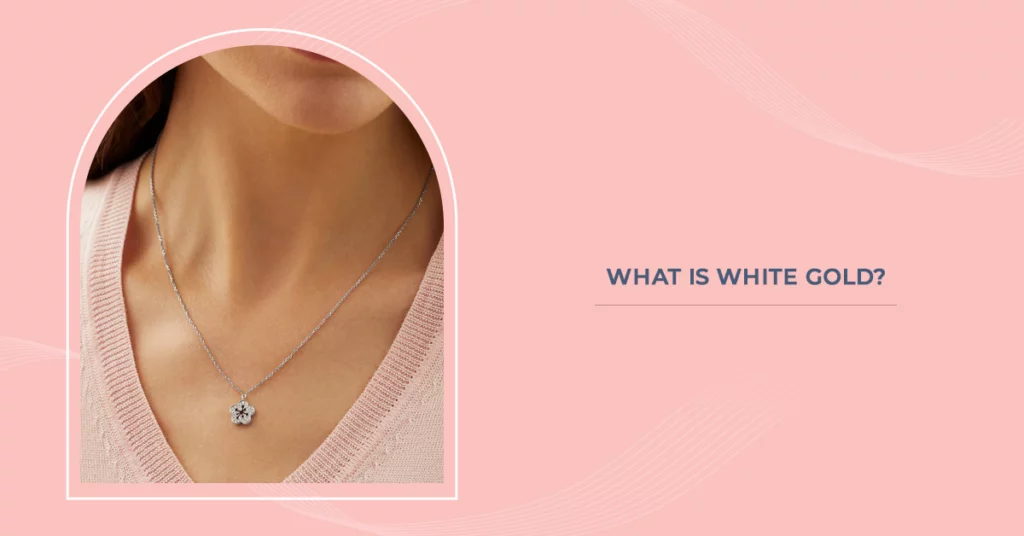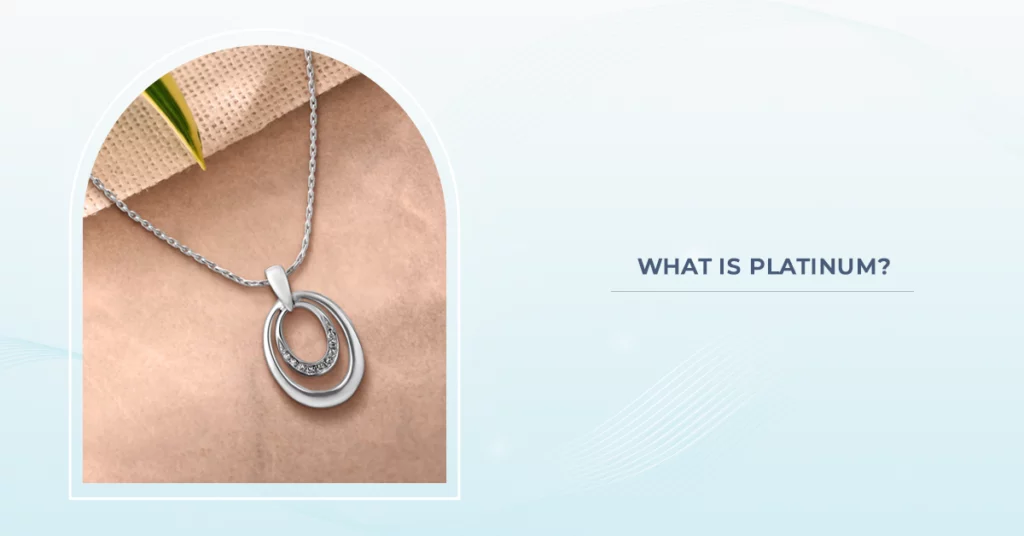
Gold is usually the first thing that comes to mind when one thinks of jewelry. However, when it comes to necklaces or jewelry in general, some individuals may find the understated elegance of white metal more appealing.
If you prefer diamond necklaces made out of white metal, there are two options: white gold and platinum. So, how do you choose between them, and which is a better metal for necklaces adorned with diamonds? Read on to find out.

Contrary to popular belief, white gold is not a naturally occurring metal. It is, in fact, an alloy of gold with at least one naturally occurring white metal, such as nickel, silver, or palladium.
In addition to contributing to the “White” in white gold, these metals also give the gold added strength since it is too soft a metal to make jewelry on its own.
The two most commonly used standards for white gold are 14 Karat and 18 Karat.

Platinum, on the other hand, is a naturally occurring rare earth element. It is a white metal in its natural state and is much more dense and durable than pure gold. This is why platinum jewelry is usually between 95-98% pure platinum, with a hint of cobalt or palladium added to give it that extra bit of strength.
Platinum also has a distinctive feature called patina, a thin layer of oxidation that forms on the surface of the metal, giving it an antique and charming look.

Now that we understand the basics let’s see how necklaces made from these two metals compare.
When it comes to diamond necklaces, you want them to last. Both white gold and platinum are durable metals, but they have different ways of showing signs of aging.
Due to the addition of stronger metals such as nickel, zinc, or palladium, white gold is one of the most durable metals for diamond necklaces. As a result, white gold is harder and more resistant to bending or breaking when compared to necklaces made from platinum, which is softer and more susceptible to scratching.
Another benefit white gold diamond necklaces have is that they are plated with a thin layer of rhodium, a rare and hard metal that gives white gold its bright white shine. In addition to the visual appeal, rhodium protects the metal from tarnishing or corrosion.
White gold and platinum diamond necklaces need periodic maintenance to keep them looking their best over time.
Depending on your usage, white gold diamond necklaces will need to be re-plated with rhodium to restore their shine and luster. Platinum is a softer material and requires regular maintenance to retain its polish and shine.
That said, platinum is a more expensive and denser material. It does require someone with more expertise to maintain them. In comparison, white gold diamond necklaces are more economical to maintain.
When it comes to cost and affordability, white gold has a clear edge over platinum for several reasons.
First, white gold is an alloy of gold and other metals, meaning less pure gold is used to make a white gold necklace, lowering the price. Meanwhile, platinum jewelry is upwards of 90% pure platinum and is more expensive per gram than gold, which drastically drives up its cost for the same design.
Second, working with white gold is much easier than platinum. The reason is that white gold can be soldered and welded easily without affecting appearance.
Platinum, however, is much more difficult to work with and requires specialty equipment and artisans with a higher skill level to work on them.
This makes white gold jewelry more convenient and less labor-intensive to produce than platinum jewelry.
So, we get to the crux of the matter.
A platinum diamond necklace could be ideal if the price tag is not a hindrance. That said, along with its rarity and purity comes the need for additional maintenance.
However, if you want a diamond necklace that is both affordable and durable, a white gold diamond necklace is the one to go for. With options like 14K or 18K, you can choose the level of purity that works best for your wallet.
If you have your heart set on getting a white gold diamond necklace, explore the exquisite collection at La Joya. You have plenty of designs to choose from, including the choice between 14k and 18k metals.
The icing on the cake is that all necklaces are embedded with environmentally conscious lab-grown diamonds.
There are a few ways to tell the difference between white gold and platinum. First, white gold will have a slightly warmer tone to it due to the presence of gold in it. Platinum tends to have a cooler and greyish tinge to it.
If you compare two pieces of jewelry of the same design, the one made of platinum will tend to be heavier.
White gold is the easier metal to work with between the two. This primarily comes down to its lower melting point and its malleability.
White gold diamond necklaces are a better choice for everyday wear due to their durability and because they are easier and more economical to maintain.
While platinum doesn’t tarnish or corrode, it may develop scratches and require regular maintenance to maintain its shine.
You can prevent your white gold from tarnishing by storing it in a soft cloth bag or jewelry box when you are not wearing it. Also, avoid exposure to harsh chemicals or chlorinated water.
Shop by metal
Shop by diamond
@ All rights reserved La Joya Jewelry Inc